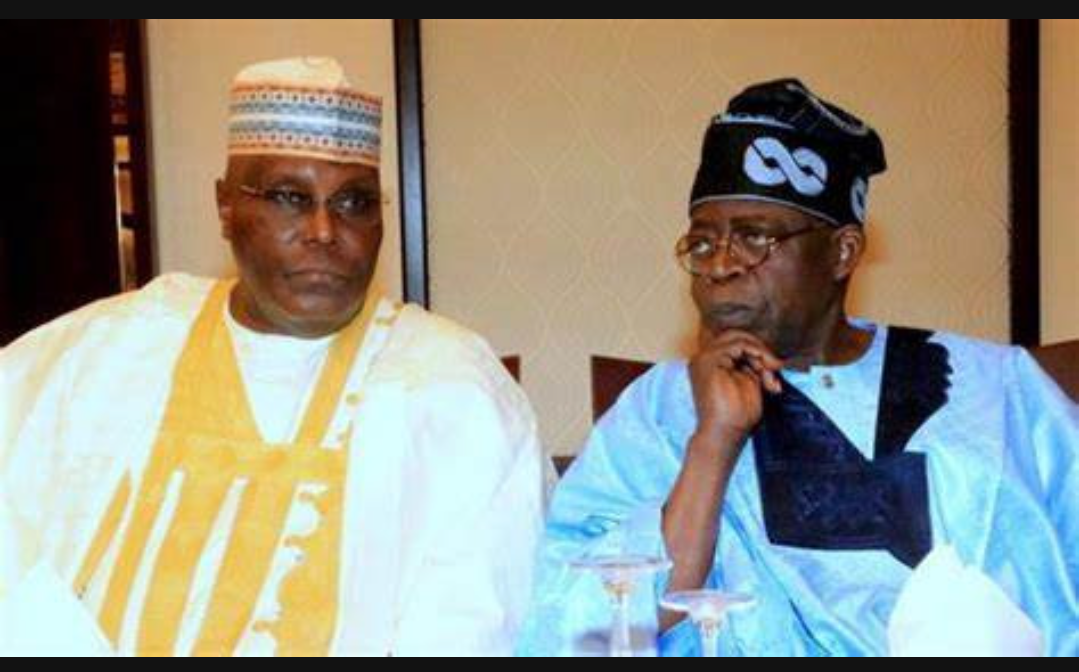News
Tinubu asks US Court to limit release of his University Records to Diploma Certificate
Nigeria’s President, Bola Tinubu, has objected to the release of his Chicago State University (CSU) records to the candidate of Peoples Democratic Party (PDP) in the last presidential election, Alhaji Atiku Abubakar.

Tinubu pleaded on Monday, September 25, that if the court was inclined to grant Atiku’s application for discovery, it should be limited to only his diploma certificate he submitted to the Independent National Electoral Commission (INEC) in aid of his qualification for the 2023 presidential election.
In his latest plea to the court, Tinubu said;
“That conclusion should be set aside and the application should be denied because the information sought cannot be used and, therefore, is not ‘for use’ in the foreign proceedings.
“Even if a narrow subset of information can be considered ‘for use’ in the foreign proceeding, that is limited to the diploma submitted to INEC. Fishing expeditions into other documents and more document productions must be precluded.”
Tinubu, through his lawyer, Mr Christopher Carmichael, made the plea before Judge Nancy Maldonado, a Senior Judge of the United States District Court for the Northern District of Illinois, Eastern Division.
Judge Jeffrey Gilbert of a Magistrate Court in Chicago had issued a 48-hour ultimatum to the CSU to release Tinubu’s academic records to Atiku to enable him prove allegations of forgery and perjury he levelled against Tinubu at the presidential election tribunal.
Atiku argued that Tinubu ought not to be part of the 2023 presidential candidates on the grounds of presenting false and forged documents to INEC.
Atiku pointed out that there was variation in the dates in Tinubu’s Diploma certificate, adding that other documents relating to Tinubu’s record in the institution showed the president as a female.
Although the electoral tribunal, in its judgement of September 6, dismissed Atiku’s request for the disqualification of Tinubu over his certificate controversies, Atiku told the US court that the Supreme court could consider fresh evidence against Tinubu.
Following his conviction that Atiku’s application had merit and outweighed Tinubu’s plea of protection and privacy, Judge Gilbert ordered that Tinubu’s record be released.
But a few hours to the execution of the order, Tinubu, in a fresh emergency application, asked the district court to delay the enforcement of the order of Gilbert till on Monday, September 25. He claimed Atiku would not be prejudiced against if the court delayed the release of the said documents, as he still had up till September 27 to submit materials in support of his appeal at the Supreme Court.
In a short ruling on Thursday night, Judge Maldonado granted the application, adding, “This needs to be handled with care.”
On Monday, Tinubu’s lawyers told Maldonado that Atiku “is not seeking anything more than opposition research on a political opponent”, adding that the magistrate, “clearly erred in granting the application for discovery and concluding that Chicago State University must respond to the document and deposition subpoenas”.
While stating that there was no presumption in favour of applications to conduct discovery under Section 1782, Tinubu urged the court to deny outright the application or narrowly limit it to “a handful of questions about the diploma submitted to INEC .”
He predicated his arguments on the grounds that the, “Discovery could not be for use in the foreign proceeding because the Nigerian election court held that it cannot be used and the only document at issue is the diploma.”
Besides, Tinubu submitted that the discovery was unduly intrusive to Private And Confidential Educational Records, which, by the United States laws, could not be released without Tinubu’s consent.
He argued;
“The Magistrate erroneously concluded that a foray into ‘other educational documents’ was permissible because ‘Intervenor also submitted other educational documents in a related proceeding in Nigeria.
“There are three shortcomings with this conclusion. First, the Nigerian constitution and Electoral Act pertain to submissions to the INEC. There is no assertion that submissions as a defence in a different and subsequent proceeding will cause disqualification.
“Second, the other submissions occurred in a ‘related proceeding,’ and Applicant justified the discovery here about the election challenge now proceeding before the Nigerian Supreme Court.
“Discovery about ‘other documents’ cannot be ‘for use’ in the election challenge proceeding.
“Third, the catchall category of ‘other documents’ is vague and is cover for a fishing expedition into protected, private, and confidential records..
“The Magistrate erred in requiring compliance with two subpoenas that go far beyond the narrow issue of the diploma submitted to the INEC, and finding that the education records protections were overcome by Applicant’s investigatory interests.”
Follow us on social media:-

 Celebrity Gossip & Gist1 day ago
Celebrity Gossip & Gist1 day ago“The money wey dem pay me don expire” – Moment Burna Boy stops his performance at the Oando PLC end of the year party (Video)
-

 Economy1 day ago
Economy1 day agoGoods worth millions of naira destroyed as fire guts spare parts market in Ibadan
-

 Celebrity Gossip & Gist2 hours ago
Celebrity Gossip & Gist2 hours agoMoment stage collapses on Odumodublvck during concert performance (Video)
-

 Economy1 hour ago
Economy1 hour agoPresident Tinubu cancels Lagos engagements in honor of food stampede victims




